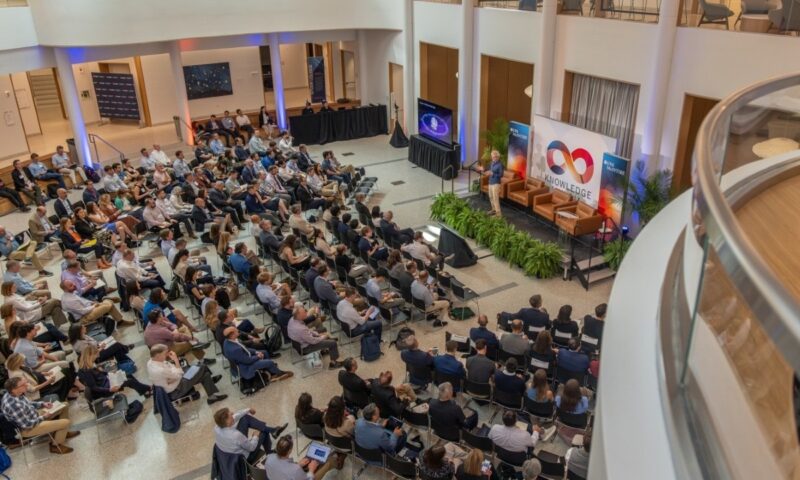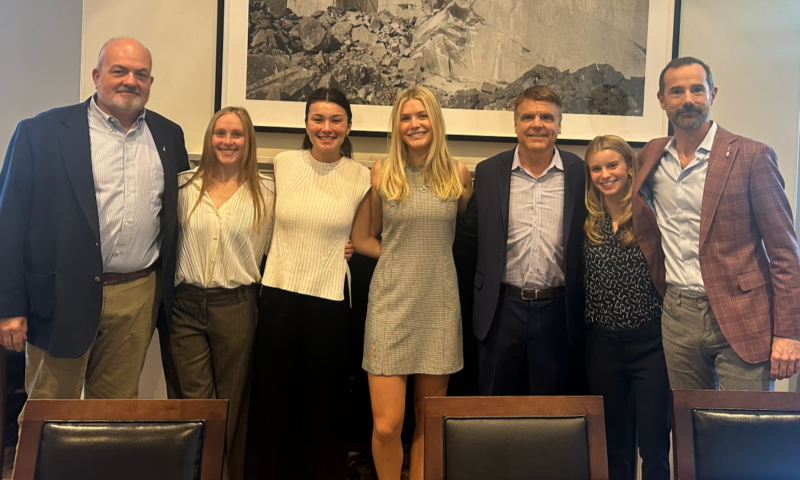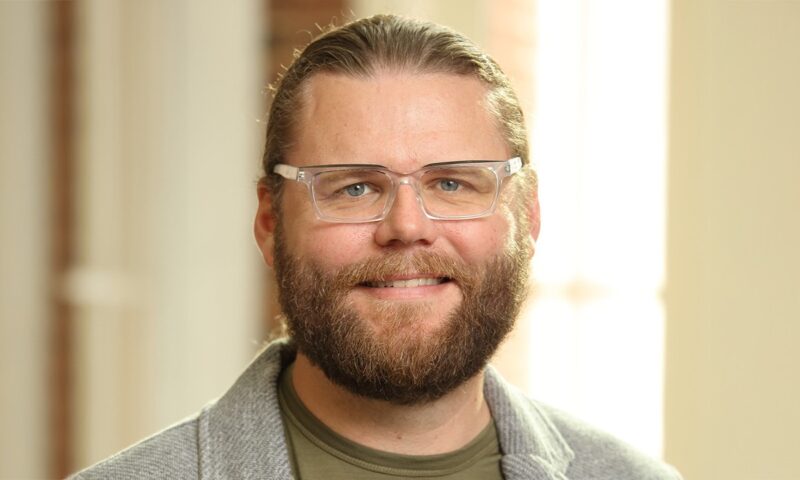
Andrea Roberts
Originally hailing from the Maryland side of Washington, D.C., Accounting Professor Andrea Roberts views her position at McIntire as the fortunate confluence of opportunities and timing. Indeed, there may be a kind of destiny to her arrival. She had hoped to attend UVA as an undergrad, and although admitted as an out-of-state student, finances prevented her from studying here. Her educational journey led her to earn a B.S. in Accounting from Towson University and spend the following five years working at Ernst & Young. After deciding she wanted a life in academia, she pursued a Ph.D. in Accountancy from The George Washington University and held her first academic post at Boston College. After nearly a decade teaching in Boston, she sought to return to the mid-Atlantic to be closer to family, yet securing employment in Charlottesville originally seemed like an unlikely possibility to her.
“UVA was one of those places that people never left. People stayed until they retired,” Roberts said. “I never saw any openings. So when I finally saw a position posted, I jumped on it.”
Recently appointed Director for the McIntire School’s M.S. in Accounting Program, Roberts teaches “Leading for Success in the Accounting Profession,” a graduate professional development course focused on collaboration, personal work styles, getting and receiving feedback, building social networks, and many topics important to young professionals. We recently spoke with Roberts about her views on the curriculum and to discover the strength of experience she brings to McIntire.
What is your vision for McIntire’s M.S. in Accounting Program?
The Program is strong, and I’ve been proud to be a part of it since arriving at McIntire. People ask me about my vision, but my vision is what the Program already is. I’m just striving to articulate what we do in a different way to make sure people get what we do here. McIntire’s graduate accounting program is integrative, high-touch, and intentional. We play to the strength of the School.
What makes the Program unique?
We give students a holistic view and challenge them to understand why accounting is what it is. It’s not just learning the numbers, debits, and credits. It’s about understanding how accounting and the profession fit into the world. And part of being a strong accounting professional is not only having good accounting skills but also having strong critical thinking, collaboration, and communication skills.
A huge component of our program is teaching and giving students lots of opportunities to practice how to communicate, work in teams, and build social networks. The vast majority of our students start their careers in professional service firms. These firms demand effective teamwork and strong communication skills. Our goal is to train accountants to possess a high degree of people skills and be immediately client-ready.
This program is also big on providing feedback to students so they can learn and grow as people and professionals. I’m a big proponent of this. Our goal is to make our students better—I want to stress the “our.” Once you join the McIntire family, everyone is dedicated to helping you succeed. I am a firm believer that you get better by surrounding yourself with people you think are smarter than you, people who will give you honest feedback, and people who want the best for you. I believe, as do many of my colleagues, that this is the way people grow and get better.
Another thing that sets McIntire’s M.S. in Accounting Program apart from others is that we do not build in formal CPA preparation into the curriculum. To be clear, passing the CPA is important. But our classes aren’t organized for that. We believe that if we teach students how to think critically, they can pass the test. And to be honest, we believe students admitted to our program have the aptitude to do well with our coursework and study for the CPA exam while doing their graduate studies.
How does the Program specifically focus on critical thinking?
Typically, as undergrad students, students are posed with a situation and required to write a journal entry, based on rules, to describe what happened. In our “Accounting Policy” class we back up and ask, “Why do we even have that rule to begin with?” Our goal is to have students question the process. “Wait a minute. I’ve been told to do this—I don’t even know if that makes sense!”
In their spring semester, they take “Corporate Reporting.” In that class, they are taught how analysts use financial information to value firms. Undergraduate curriculums typically focus on how to prepare accounting information. I want to stress how important this is in undergraduate curriculums! But, many times, students don’t connect the dots and recognize that people are actually using this information to make decisions. What students recognize quickly is that when managers of organizations know that people use accounting information to make decisions, this creates a multitude of incentives to manipulate this information.
An example of another course is “Judgment and Decision Making.” This class is psychology-focused. I know there is this idea in the world that accounting is black and white. But, in reality, this is far from the truth. This class focuses on the biases we have when accountants make decisions and how that affects financial statements, accounting information, and audit procedures. Students learn about how we think and behave and, in turn, how those factors might affect their work and the work of others.
What aspects of your research impact your teaching?
My research is around nonprofits. But for many years, I have taught the “Corporate Reporting” course, and I teach “Strategic Cost Management” to our undergraduates. This means that I have a good understanding of what goes on in both the for-profit and nonprofit worlds.
The issues I study in nonprofits are similar to those that my colleagues examine in for-profit research—I just think about those issues in a different context. In the beginning of my career, I focused on financial reporting issues around nonprofits. Now, I have become more interested in nonprofit governance issues. I think because of my personal background and my work with nonprofits, I bring a perspective to my classes that students might not expect when take a course in a business school. For example, I push students to push back—things as simple as the idea that it’s the manager’s responsibility to maximize profits. I believe in a stakeholder view of the world, which differs from a shareholder’s view of the world.
Any fun facts or memorable experiences about yourself you’d be willing to share?
I love to travel. And when I travel, I love to put myself in uncomfortable situations. Uncomfortable means something that I’m not used to. My family sometimes thinks I’m a little crazy. But, in my mind, I tell myself that we will all be better for it. A couple of years ago, my family and I spent three and half months on Semester at Sea, a traveling university on a ship. I have stories to share with anyone who cares to listen!


